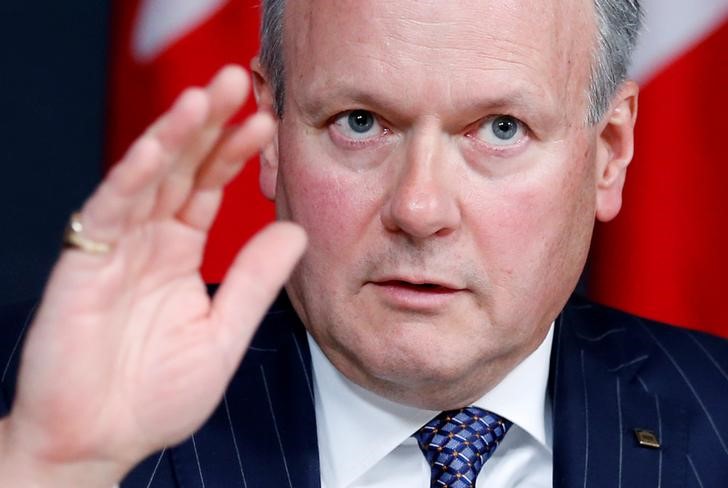By Fergal Smith
TORONTO, Dec 14 (Reuters) - The Bank of Canada is growing increasingly confident that the economy will need less stimulus over time, Governor Stephen Poloz said on Thursday, adding that the economy is in a sweet spot after making "tremendous" progress over the last year.
In a year-end speech, Poloz said current monetary policy "clearly remains quite stimulative" despite two interest rate hikes earlier in the year, adding that the economy was close to reaching its full potential.
"We are very encouraged by this, and we are growing increasingly confident that the economy will need less monetary stimulus over time," Poloz said in prepared notes for a speech to the Canadian Club in Toronto.
While a mechanical approach to setting policy would suggest rates should already be higher, the bank still sees signs of ongoing but diminishing slack in the labor market, Poloz said.
Canada's economy is near capacity and growth is forecast to continue above potential, posing an upside risk to the inflation forecast, he said. At the same time, labor market slack poses a downside risk.
"Given the unusual factors at play, the bank is monitoring these risks in real time - the term we use for this is 'data dependent' - rather than taking a mechanical approach to policy setting," Poloz said.
He reiterated that the bank will be cautious in its upcoming policy decisions, watching the economy's sensitivity to rate hikes, the evolution of economic capacity, and the dynamics of both wage growth and inflation.
Financial markets expect the bank to raise rates further in 2018 after hiking in July and September, but analysts are divided over whether the next move will come as soon as Jan. 17.
Poloz pointed to high house prices and elevated household debt as one of his top three concerns, along with the risk of cyber attack and youth underemployment. But he said new mortgage guidelines should mitigate some of the housing risk.
He said the economy is "quite close to home" - the intersection of full capacity and the bank's inflation target - with inflation expected to be around 2 percent later in 2018, as exports are boosted by foreign demand and housing growth slows.
"For some time now, we have been expecting a rotation away from housing and toward other engines of growth, such as exports and investment. We are seeing signs of that fundamental rotation now," Poloz said.
